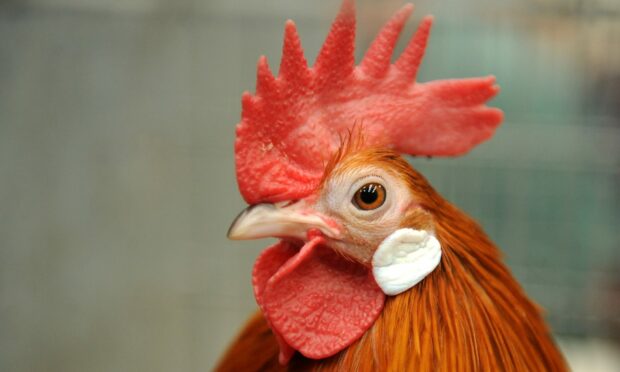The chief veterinary officer has confirmed that avian flu has been found in an Aberdeenshire “backyard” flock.
A notice on the Scottish Government’s website, signed by Rural Affairs Secretary Marie Gougeon confirmed the bird flu outbreak at Ramana Farm, Barthol Chapel in Inverurie.
A backyard flock is a non-commercial flock of fewer than 350 birds maintained by smallholders, crofters or individuals.
The notice reads: “The chief veterinary officer has formed the opinion that highly pathogenic avian influenza exists, or has in the previous 56 days existed, on premises and has informed the Scottish ministers of that conclusion.
“In accordance with article 19 of the Avian Influenza and Influenza of Avian Origin in Mammals (Scotland) Order 2006 (“the Order”), the Scottish Ministers confirm the existence of highly pathogenic avian influenza and declare the premises to be infected premises.
“This declaration has effect from the date and time it is made, until it is amended or revoked by further declaration.”
It continued: “Highly pathogenic avian influenza (HPAI) H5N1 was confirmed at a premises near Inverurie, Aberdeenshire on January 22, 2022.
Special category premises
“This premises was deemed a ‘special category premises’ due its non-commercial nature.
“As a result of this, and based on a veterinary risk assessment, no new disease control zones were applied.”
The Press and Journal previously reported that an Aberdeenshire rescue centre had shut its doors to wild birds over bird flu fears
The chief veterinary officer Sheila Voas, wrote on social media of her disappointment at the outbreak.
Very disappointed to have today confirmed avian flu in backyard flock 🦆 🐓 🦃 near Inverurie. No zones as special category non commercial premises + vet risk assessment deemed unnecessary given existing Prevention Zone (#AIPZ) requirement for enhanced biosecurity, inc housing.
— Sheila Voas (@CVOScotland) January 22, 2022
She wrote: “Very disappointed to have today confirmed avian flu in backyard flock near Inverurie.
“No zones as special category non commercial premises an vet risk assessment deemed unnecessary given existing Prevention Zone (#AIPZ) requirement for enhanced biosecurity, inc housing.”
Is there a risk to humans?
Although avian influenza is primarily a disease that affects birds, it does pose a very low risk of transmitting to humans.
The UK Health Security Agency (UKHSA) said that bird flu’s “risk to the general public’s health is very low”.
And the Food Standards Agency (FSA) said on the “basis of the current scientific evidence, avian influenza poses a very low food safety risk for UK consumers”.
The FSA also said that properly cooked poultry and poultry products including eggs are safe to eat.
Bird flu is not connected to Covid-19.
What should I do if I see a sickly or dead bird in the wild?
If you spot a wild bird which looks sick or is dead, do not touch it.
Migratory species like geese can carry the virus.
If you come across dead wild waterfowl, such as swans, geese or ducks, or other wild birds like gulls or birds of prey, report it to the Department for Environment, Food and Rural Affairs (Defra) on the national helpline 03459 33 55 77.
For more information on bird flu in the UK click here.
